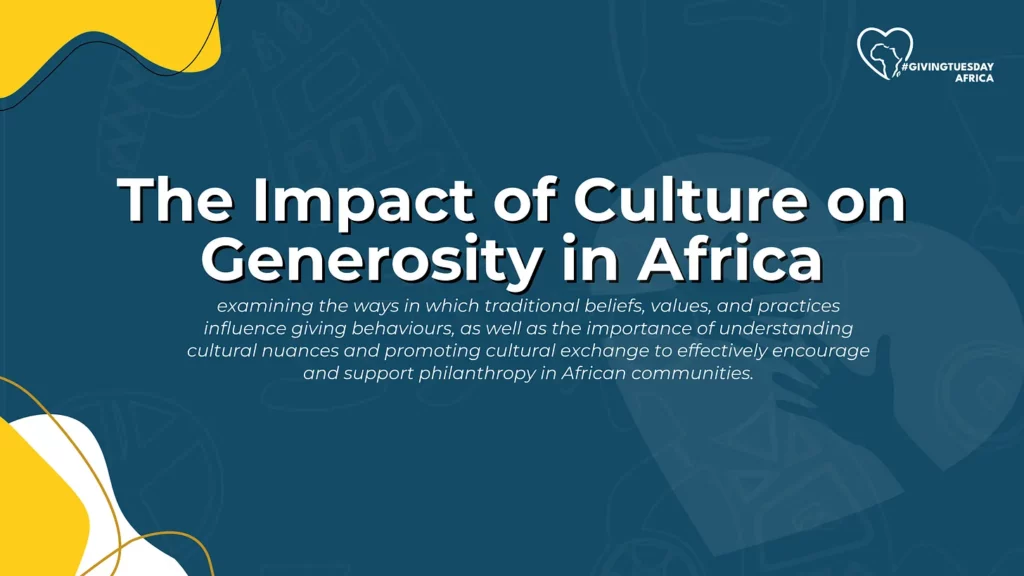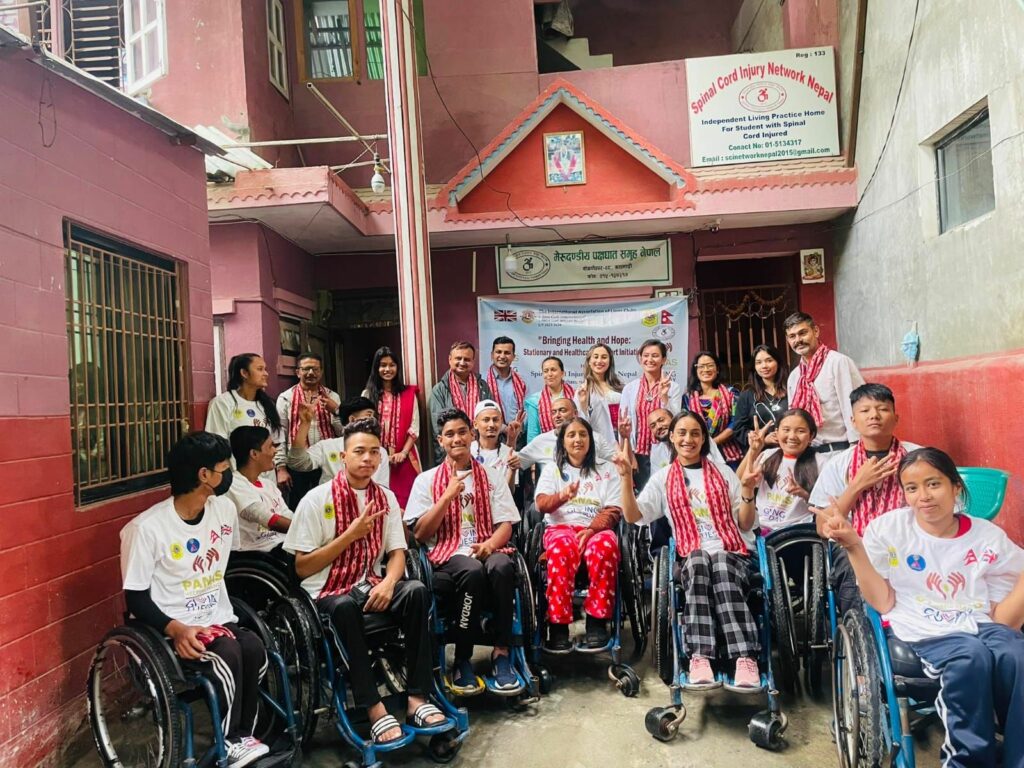
GivingTuesday Africa Hub
Generosity has been a key part of African culture for centuries. From communal living and sharing to traditional forms of giving, African societies have always recognized the importance of generosity and its impact on individuals, families, and communities. Today, this culture of giving is continuing to evolve and adapt to changing times, with modern forms of philanthropy, community-based giving, and social entrepreneurship gaining traction across the continent.
According to the World Giving Index 2022, which measures generosity across the world, African countries consistently rank among the most generous in the world.
Kenya is the second-most-giving nation after Indonesia, with a score of 61%, up from 58% in 2020. Kenya scored significantly higher than the global average for helping a stranger in 2021, with 77% of Kenyans doing so compared to 62% globally.
These outcomes may also be influenced by community-focused cultural practices like Kenya’s “harambee” which brings people together in times of greater need, such as the Covid-19 pandemic.
“Kenyans’ high levels of solidarity and giving, despite the difficulties experienced over the past year due to the COVID-19 pandemic and rising cost of living, is truly encouraging.” The underpinnings of our culture and religious influence continue to contribute to actions around giving and therefore it is important for us to strengthen these positive values. My hope is that our giving and solidarity will permeate to non-traditional areas such as social justice. It is also critical that more avenues are opened to support Kenyans who give and make it easier for Kenyans to give in an organised manner that ensures transparency and accountability.”
-Grace Maingi, Executive Director, Kenya Community Development Foundation
Other African countries like Nigeria, Ghana, Sierra Leone, South Africa, Uganda, and Tanzania also ranked high on the index, reflecting the strong culture of generosity that exists across the continent.
Understanding the local context is crucial in promoting and encouraging giving for several reasons:
- Cultural sensitivity: Different cultures have different values, norms, and practices that shape attitudes toward giving. Understanding the local context can help ensure that efforts to promote giving are culturally sensitive and appropriate.
- Tailored messaging: to help in crafting messages that resonate with local values and priorities, making them more effective in motivating giving.
- Building trust: to help build trust with local communities, making it more likely that they will be receptive to messages about giving and philanthropy.
- Identifying barriers: to help identify barriers to giving, such as economic or cultural factors, and develop strategies to overcome them.
- Sustained impact: to help in designing sustainable giving programs that are tailored to local needs and priorities, and are more likely to have a lasting impact on the community.
One of the key drivers of this culture of generosity in Africa is the concept of Ubuntu a traditional African philosophy that emphasizes the interconnectedness of all people and the importance of sharing and helping others. Ubuntu is rooted in the belief that a person is only a person through other people, and that everyone has a responsibility to contribute to the well-being of the community.
In addition to traditional forms of giving, African communities are increasingly embracing modern forms of philanthropy, including impact investing, social entrepreneurship, and community-based giving. For example, the African Philanthropy Forum, a network of African philanthropists and social investors, has been instrumental in promoting modern forms of giving and building a more sustainable and equitable future for the continent.
Community-based giving is another growing trend in Africa, with communities coming together to pool their resources and support local development projects. In Nigeria, for example, the “Ajo” system is proof that community giving exists. This traditional savings and credit scheme enables members to pool their money and take turns receiving lump sums to support their businesses or other financial needs. This type of community-based giving promotes a sense of collective responsibility and strengthens social bonds within communities.
Here are five ways African culture shapes generosity:
- Ubuntu philosophy: Ubuntu philosophy is a common cultural practice in many African communities that emphasizes the interconnectedness of people and the importance of community. This philosophy values kindness, sharing, and generosity as a means of strengthening community ties.
- Family values: Family is highly valued in many African cultures, and generosity is often viewed as a way of providing for and supporting one’s family members.
- Religious beliefs: Many African cultures are deeply religious, and religious beliefs can shape attitudes toward giving. For example, in Islam, giving is viewed as a form of worship and an obligation to help those in need.
- Respect for elders: Elders are highly respected in many African cultures, and generosity toward elders is often viewed as a way of showing respect and gratitude.
- Communal celebrations: In many African cultures, communal celebrations such as weddings, the birth of a baby, funerals, and harvest festivals are occasions for generosity and sharing.
However, despite the culture of generosity that exists across the continent, there are still significant challenges to be addressed. One major challenge is the limited resources and data available for giving; there is a need for more transparency and accountability in the sector, to ensure that resources are being used effectively and equitably.
To address these challenges, it is important to continue to promote and support the culture of generosity that exists in Africa, while also exploring new and innovative approaches to giving, such as leveraging technology and new media to reach a wider audience, building partnerships and collaborations between different sectors, and promoting greater transparency and accountability in the sector.
The culture of generosity in Africa is one of richness and diversity, traditional practices and philosophies like these “Ubuntu”, “Omugwo”, “Ajo” and more must evolve and adapt to changing times. Through traditional and modern forms of giving, African communities can come together to build a more sustainable and equitable future for the continent.




